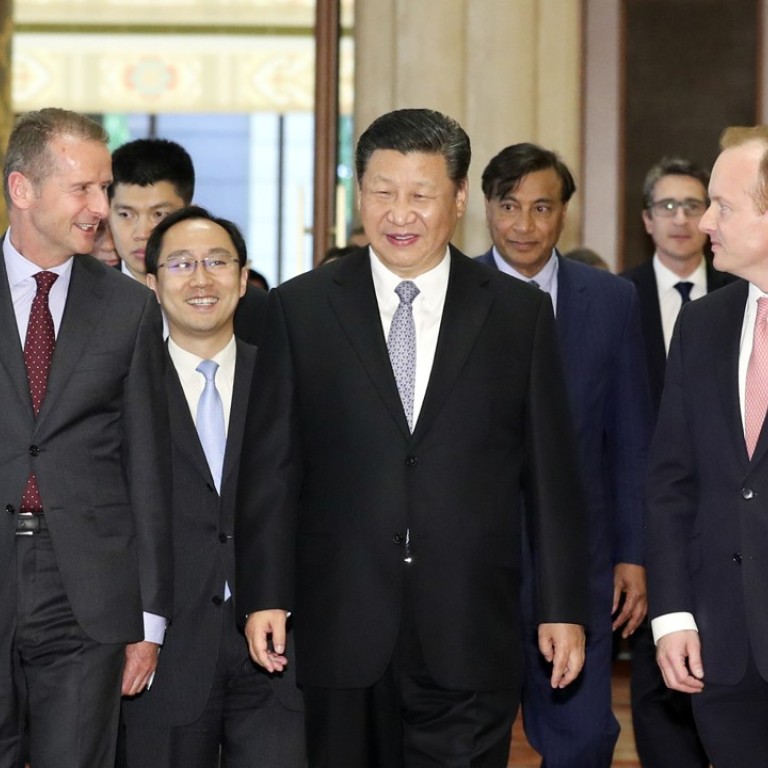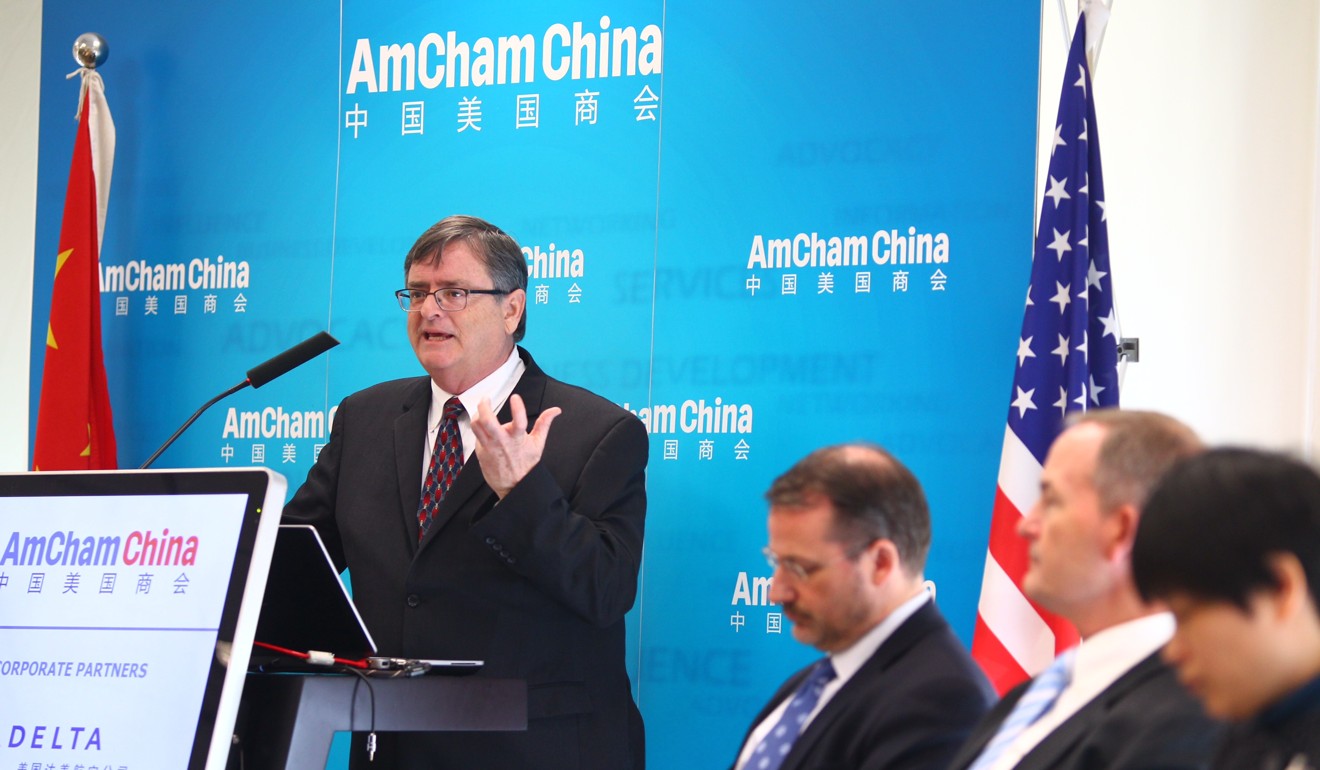
Exclusive | Beijing ‘won’t target’ US firms in China to hit back at US President Donald Trump’s trade threats
The Chinese authorities are keen to reassure foreign businesses in China and retaliation against them has ‘never been on the cards’, government sources say
The Chinese government has no plan to target US firms in China in response to Washington’s trade threats because it would run counter to Beijing’s goal of attracting foreign investment, two Chinese government sources said.
The sources said the authorities were trying to reassure foreign businesses in China amid fears that Beijing could hit back at US President Donald Trump’s proposed tariffs on Chinese goods by harassing American firms or depriving them of commercial opportunities.
“A big worry for China is that foreign investors are opting to leave the country,” one source said. “The option of targeting US firms in China has never been on the cards.”
Chinese President Xi Jinping’s round table with foreign business executives on Thursday and his promises that China’s market would remain open “sent a very clear message from the top leadership” that US firms were still welcome, the source added.
Among the executives at the meeting were David Abney of UPS, Pfizer’s Albert Bourla, Arnold Donald from Carnival, Cargill’s David MacLennan, Hamid Moghadam of Prologis, Thomas Pritzker of Hyatt and David Solomon from Goldman Sachs.
Speculation on possible Chinese retaliation rose last week when China’s Ministry of Commerce said it would take “quantitative and qualitative” measures to respond to Trump’s threats to target another US$200 billion of Chinese products with a 10 per cent tariff if Beijing hit back against another 25 per cent duty on US$50 billion of imports from China.
Since China’s total imports of US products were US$130 billion in 2017, it would be practically impossible for Beijing to impose tariffs on the same scale of US products, fanning suggestions that Beijing might restrict US investment and tell Chinese companies not to do business with American firms.

James Zimmerman, a partner in the Beijing office of law firm Perkins Coie and former chairman of the American Chamber of Commerce in China, said China might take “more underhanded and damaging forms of retaliation such as instructions to Chinese companies and consumers to channel their business away from American companies”.
But a second source said this option was not under consideration while China was still trying to de-escalate the tensions.
US companies had an outstanding US$256 billion in investment in China by the end of last year, exceeding China’s outstanding investment of US$140 billion in the United States, according to a report by the National Committee of US-China Relations and Rhodium Group in April.
Chinese investment in the United States dropped to US$29 billion in 2017 from US$46 billion in 2016, but the flow was still twice the level of US investment in China last year, according to the same report.
Efforts by both sides to defuse the tensions are continuing before the first batch of tariffs on Chinese products comes into effect on July 6.
Sources told the South China Morning Post that one of Beijing’s key negotiators, commerce vice-minister Wang Shouwen, had spoken to US businesses in China in search of a last-minute compromise.
National Economic Council staff in Washington had also contacted former US government officials and China experts in recent days to assess the chances for high-level talks in the next two weeks that would include Vice-President Wang Qishan, Bloomberg reported, citing unidentified sources.

